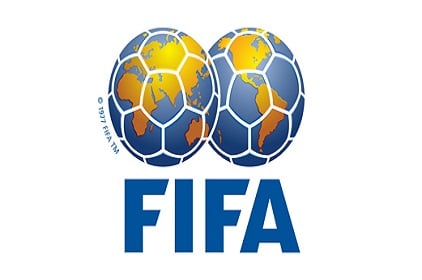The South African national football team, Bafana Bafana, finds itself embroiled in a disciplinary controversy that could significantly impact their 2026 World Cup qualifying campaign. FIFA, the global football governing body, has initiated disciplinary proceedings against South Africa for fielding an ineligible player, Teboho Mokoena, during their qualifying match against Lesotho in March. Mokoena had accumulated two yellow cards in prior qualifying matches, triggering an automatic one-match suspension he was supposed to serve during the Lesotho game. The South African Football Association (SAFA) and Mokoena have been given a short timeframe to respond to the charges. This development has injected a renewed sense of hope, albeit tinged with scepticism, among Nigerian football fans, as a potential sanction against South Africa could reshape the standings of Group C and open a pathway for the Super Eagles to secure a World Cup berth.
The potential ramifications for South Africa are substantial. A guilty verdict could result in a forfeit of the match against Lesotho, awarding their opponents a 3-0 victory and potentially altering the group’s dynamics. South Africa currently leads Group C with 17 points. A three-point deduction would not only level them with the Benin Republic at 14 points but also narrow the gap between them and Nigeria to a mere three points with two crucial qualifying matches remaining. This scenario would leave the race for the automatic qualification spot wide open. Lesotho, currently in fifth position with six points, would benefit from the awarded victory, boosting their tally to nine points, though this would still leave them trailing Nigeria and Rwanda, both on 11 points. South Africa’s final two qualifiers are against Zimbabwe and Rwanda, presenting formidable challenges that will determine their ultimate fate.
Nigeria’s hopes of qualifying now hinge on a combination of factors. They must secure victories in their remaining fixtures against Lesotho and the Benin Republic, while hoping that South Africa falters in one or both of their matches. The precedent set by FIFA’s recent punishment of Equatorial Guinea for a similar infraction, a decision upheld by the Court of Arbitration for Sport, provides a framework for the potential outcome of South Africa’s case. However, the Nigerian football community remains divided in its outlook, with a mixture of cautious optimism and deep-seated frustration prevailing.
While some fans see a glimmer of hope in South Africa’s predicament, many remain sceptical about the Super Eagles’ ability to capitalize on the opportunity. Numerous Nigerians have expressed their reservations on social media platforms, citing concerns about the team’s inconsistent performances and questioning their ability to overcome even seemingly weaker opponents like Lesotho. The prevalent sentiment is that even a favourable ruling against South Africa might not be enough to mask the Super Eagles’ underlying weaknesses and their tendency to squander winnable matches.
The scepticism surrounding the Super Eagles’ chances stems from a history of underperformance and missed opportunities in crucial qualifying matches. Drawing games against opponents they were expected to defeat has become a recurring theme, eroding the fans’ confidence in the team’s ability to deliver when it matters most. The prevailing view is that even if South Africa were to be penalized, the Super Eagles might not be able to muster the necessary consistency and winning mentality to secure their own qualification. This perspective underscores the deep-rooted frustration among Nigerian fans who yearn for a return to the national team’s glory days.
Beyond the immediate implications of the disciplinary proceedings, the South Africa case highlights the critical importance of adhering to FIFA regulations regarding player eligibility. It serves as a cautionary tale for all national teams participating in international competitions, emphasizing the need for meticulous record-keeping and strict adherence to the rules governing player suspensions. The potential consequences of fielding an ineligible player, ranging from forfeited matches and point deductions to fines and suspensions, can severely jeopardize a team’s chances of progressing in a tournament. The case underscores the need for football associations to prioritize compliance and ensure that all players’ eligibility status is carefully monitored and verified before each match. The incident serves as a reminder that even seemingly minor administrative oversights can have far-reaching consequences in the high-stakes world of international football. For South Africa, the outcome of this disciplinary process could determine their World Cup destiny, while for Nigeria, it represents a potential lifeline, albeit one they must grasp with unwavering determination and improved performance on the pitch.














